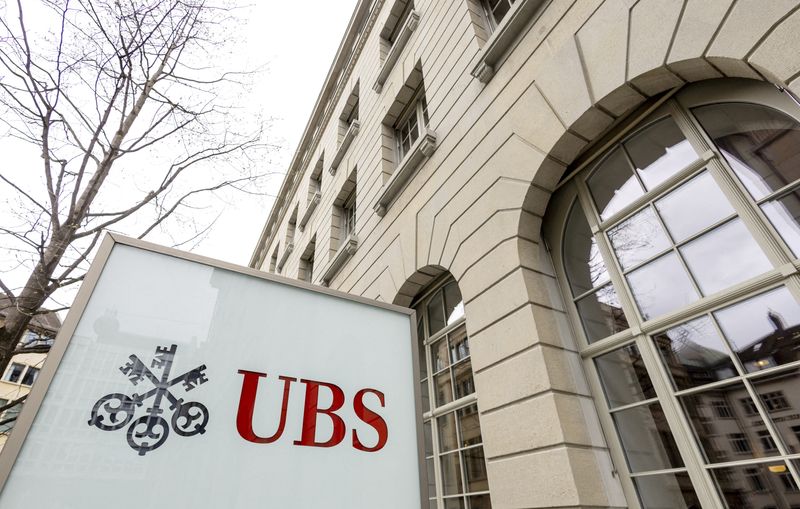By John Revill
ZURICH (Reuters) -Switzerland's Social Democratic Party has drawn up a proposal to shrink UBS assets after its takeover of Credit Suisse to reduce the risk of another expensive state-backed rescue, its lawmaker was quoted as saying on Tuesday.
It was not clear, though, how much traction the proposal, which was presented by Samira Marti in an interview with Swiss newspaper Aargauer Zeitung, can get.
The combined bank will have a balance sheet of around 1.5 trillion Swiss francs - roughly double the size of the Swiss economy, posing enormous risks to the country especially as it enjoys an implicit state guarantee, Marti said.
The left-leaning party will propose to cap the bank's assets at half of Switzerland's gross domestic product, effectively forcing the new UBS to slash its assets to a quarter of their current level.
"That would be a drastic reduction, but from the taxpayer's point of view, it's necessary," she said.
The initiative first needs to be submitted to the Swiss cabinet, which will make a recommendation before the matter is discussed in parliament.
Social Democrats are the second-biggest party in the lower house, but with only 39 of the 200 seats will need support of other parties. The Swiss People's Party, which has 53 lower house seats, joined the Social Democrats in rejecting the government's aid package for the merger last month and has also called for no more taxpayer-funded bailouts for banks.
Still, the two parties would remain short of a majority and some analyst described the proposal as unrealistic and more about tapping into widespread public anger with banks ahead of national elections in October.
UBS declined to comment. The lender is expected to close the deal with Credit Suisse "very shortly," Chairman Colm Kelleher said last week.
Previously UBS Chief Executive Sergio Ermotti, who was brought in to steer the mega merger, has dismissed fears the new bank would be too big for Switzerland.
"Even putting UBS and Credit Suisse together, we won’t be at the top of the classification for international banks in terms of size," Ermotti told Italian business daily Il Sole 24 Ore last month.
He has also said the business model of a bank and the risks it took on was more important than its actual size.
An alternative, also considered by the Social Democrats, would be imposing higher capital requirements if the bank's assets rose above 50% of Swiss GDP.

Any part of UBS's balance sheet above that threshold would require an equity ratio of 30% or more, Marti said of her party's proposal.
"The aim is for UBS to become smaller," Marti told the newspaper. "We have to make improvements so that banks are less vulnerable in a crisis."